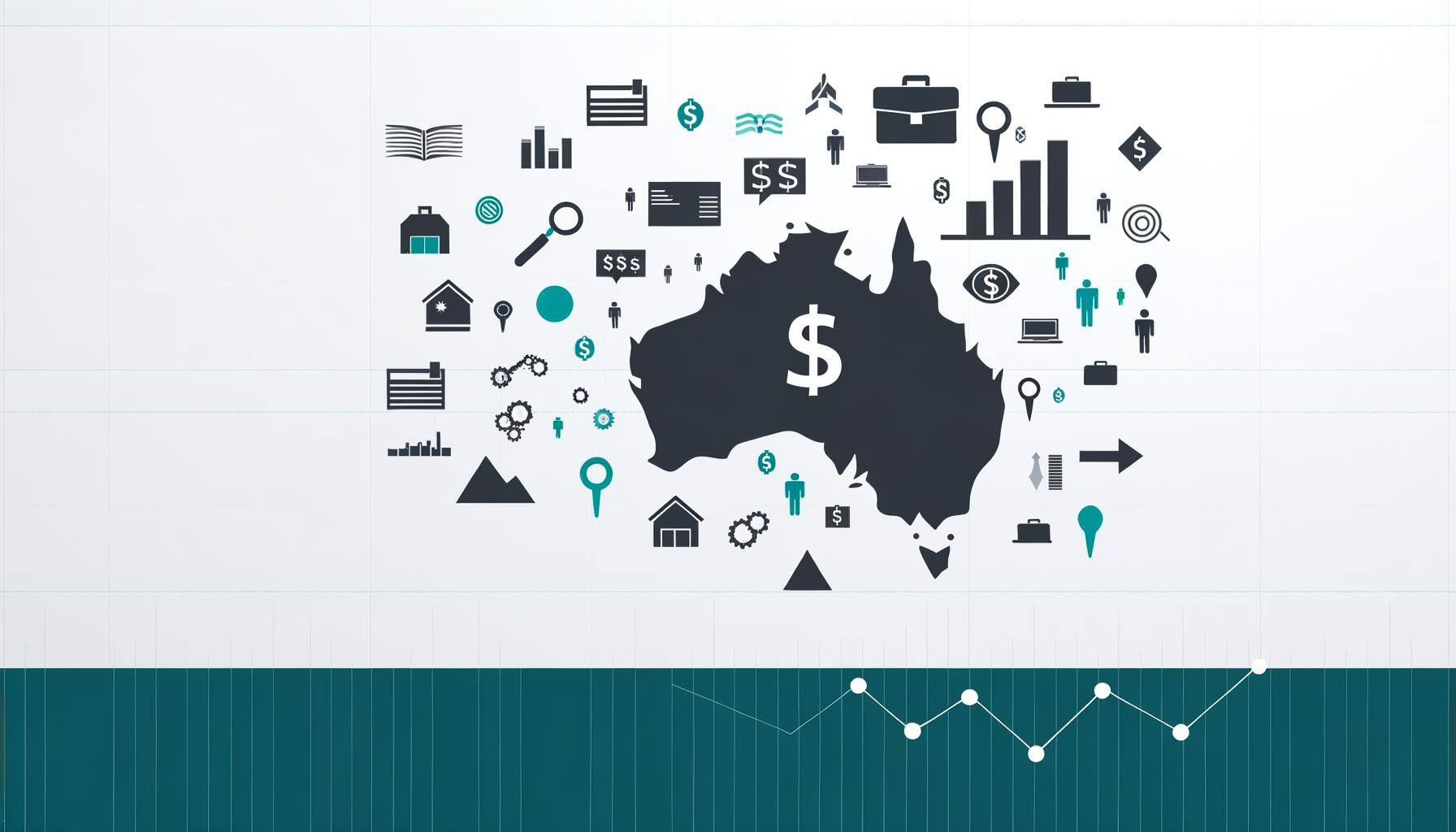Seven West Media Restructures, Cuts Jobs to Save $100 Million
In a major shake-up, Seven West Media is reorganising into three divisions and promoting key executives as part of a $100 million cost-cutting strategy. The move comes amidst challenging market conditions and the end of a lucrative deal with Meta.
New Leadership Structure
Sources reveal that Angus Ross will become managing director of the television division, while Gereurd Roberts will head the digital arm. Maryna Fewster will continue to lead Seven West Media WA. This restructure marks the first significant change under new CEO Jeff Howard, who replaced James Warburton in April.
High-Profile Departures
The reorganisation has led to several notable exits, including:
- Kurt Burnette, chief revenue officer
- Lewis Martin, head of sport and managing director of Seven Melbourne
- Melissa Hopkins, chief marketing and audience officer
"I have loved everything about my time at Seven and in the media, primarily the wonderful people I have worked with, and competed against," Martin said.
Job Cuts and Financial Pressures
Seven West Media plans to cut up to 150 jobs across its divisions, including The West Australian newspaper. The company faces structural challenges in free-to-air television and broadcast video-on-demand, impacting profit margins. The end of a $15 million annual deal with Meta adds to the financial pressure.
As the media landscape evolves, Seven West Media's shares dropped 1.7% to 17.2 cents on Wednesday morning, reflecting investor concerns about the company's future in a rapidly changing industry.
Star Entertainment Appoints Steve McCann as New CEO
In a bid to revitalise its struggling operations, Star Entertainment has named Steve McCann as its new chief executive. The appointment comes as the company fights to retain its Sydney casino licence and grapples with a decline in high-roller activity.
A Seasoned Industry Leader
McCann, who previously led Crown Resorts and Lendlease, brings a wealth of experience to the role. Star chairwoman Anne Ward praised his credentials, particularly highlighting his expertise in leading remediation programs.
"Given his time with Crown and previous long-standing leadership at Lendlease, he has the right credentials to lead Star's remediation program," Ward stated.
Challenges Ahead
McCann faces several immediate challenges, including:
- The outcome of an ongoing NSW inquiry into Star's Sydney operations
- Opening the new Queen's Wharf precinct in August
- Implementing cashless gaming in Sydney by August 31
- Refinancing Queen's Wharf debt
- Addressing potential penalties from the financial crimes watchdog
Financial Pressures
Star recently announced that its full-year earnings would be significantly lower than last year, citing declining premium gaming revenue and rising remediation costs. The company is accelerating cost-reduction plans and considering asset sales to improve its financial position.
Despite these challenges, the NSW Independent Casino Commission expressed encouragement at McCann's appointment, suggesting it could help Star navigate its current difficulties.
With Star's shares down 12.3% since January, all eyes will be on McCann to see if he can turn the company's fortunes around.
RBA: High Interest Rates Shake Up Aussie Property Market
As of 26 June 2024, the Reserve Bank of Australia (RBA) reports that rising mortgage rates are causing significant shifts in the property market. Highly leveraged borrowers are selling properties and consolidating savings into offset accounts, according to RBA Assistant Governor Christopher Kent.
Key Insights:
- The current cash rate of 4.35% is cooling the economy
- The 'neutral' cash rate is estimated at around 3.5%
- Mortgage discharges have hit a record $40 billion per quarter
- New loans are down 20% from their March 2022 peak
"Higher interest rates are providing an incentive for all households to save more and borrow less," said Dr Kent.
Market Trends:
Investor-owned property listings have surged, with Melbourne seeing a 34% increase and Sydney a 17% rise over the past year. This trend is attributed to poor returns and changes in state government taxes.
Despite lower overall savings, Australians are putting more into extra mortgage payments, now above the long-term average of 2% of disposable income. Many are utilising offset and redraw accounts due to their high tax-adjusted returns.
Looking Ahead:
The RBA expects to keep the cash rate steady until May 2025, with gradual cuts thereafter. Dr Kent emphasised that current monetary policy is "restrictive" and households are feeling a "painful squeeze", with mortgage repayments consuming a record 10% of household disposable income.
As the property market continues to adjust to these economic conditions, both investors and homeowners will need to stay informed and adaptable.
Iconic Sydney Luna Park Up for Sale at $70 Million
Sydney's beloved Luna Park, a harbourside landmark since 1935, is on the market with an expected price tag of $70 million or more. Current owner Brookfield, a Canadian property giant, is selling to focus on core assets in its Australian portfolio.
A Rich History and Bright Future
The heritage-listed amusement park, protected by government legislation, has weathered its share of ups and downs over the decades. Recent years have seen significant investments, including:
- $40 million spent in the past four years
- Addition of the $15 million Immersive Big Top
- 17 amusement rides
- 7000 square metres of building space
- 389-space car park
"It's time for Luna Park to transition to new custodians, who can steer the business through to its next phase of growth and ensure it remains an icon of the Harbour City," said Ruban Kaneshamoorthy, Brookfield's head of real estate investments.
A Unique Investment Opportunity
The sale comes amidst surging demand for entertainment assets post-pandemic. CBRE's Simon Rooney, leading the sale campaign, highlighted the park's potential:
"Trophy assets such as Luna Park are tightly held and rarely traded, providing an opportunity to secure a world-class entertainment, event and experience destination with further upside."
With its prime location opposite the Sydney Harbour Bridge and a strong track record of hosting major events, Luna Park offers a unique blend of nostalgia and future potential for investors looking to make their mark on Sydney's entertainment landscape.
UBS Bullish on Aussie Consumer Stocks Despite Mixed Signals
UBS has taken a bold stance on Australian consumer discretionary companies, urging investors to buy up shares in anticipation of increased household spending. The broker's optimistic outlook comes despite recent profit warnings from several firms in the sector.
Consumer Resilience on the Rise
UBS's consumer survey for Q2 2024 reveals a surprising trend: Australians are becoming more resilient in their spending habits. Job security and rising asset prices are offsetting cost of living pressures, leading to record-high spending intentions over the next 12 months.
"The more upbeat message we received from middle-income households, combined with recent share price underperformance and undemanding valuations, prompts us to tactically shift our recommendation on the consumer discretionary sector to overweight," said UBS strategist Richard Schellbach.
Contrasting Views
However, this optimism contrasts sharply with other consumer sentiment measures. Both Westpac-Melbourne Institute and ANZ-Roy Morgan surveys show consumer confidence remains deeply negative, well below long-term averages.
Tax Cuts and Budget Measures
UBS believes the upcoming tax cuts, worth $23 billion or nearly 1% of GDP, will likely be spent rather than saved. HSBC echoes this sentiment, suggesting that budget measures will support a pick-up in household disposable income and consumer spending in the latter half of 2024.
Despite the conflicting signals, UBS is doubling down on its survey findings, upgrading the consumer discretionary sector to overweight and recommending buys for Super Retail, Collins Foods, and Telstra.
Goldman Sachs Appoints New Equities Chief Amidst Talent Shake-up
In a strategic move to bolster its equities division, Goldman Sachs has appointed Mark Davis as its new head of equities in Australia. The announcement comes as the Wall Street giant grapples with recent departures to rival Jefferies Australia.
A Seasoned Professional Takes the Helm
Davis brings a wealth of experience to the role, having previously led Credit Suisse's global markets equities for five years. His impressive career also includes stints at Western Union and Deutsche Bank, where he held key positions in Hong Kong and Tokyo.
"Mark's extensive background in global markets makes him an ideal fit for driving our equities business forward," said Simon Rothery, Goldman Sachs Australia CEO.
Talent Exodus and Market Leadership
The appointment follows the departure of Mario Argyrides, who left to join Jefferies Australia along with several other Goldman executives. Despite these losses, Goldman Sachs remains a market leader, having overseen major deals including Infratil's $1 billion equity raise and Xero's $1.27 billion convertibles deal.
Looking Ahead
Industry insiders suggest that Goldman Sachs is poised to make additional hires in its equities team in the coming months, signalling a commitment to strengthening its market position.
As the financial landscape continues to evolve, Goldman Sachs' strategic moves in the Australian market will be closely watched by investors and competitors alike.
Deutsche Bank Bolsters Australian Team with Key Hire
Deutsche Bank continues to strengthen its presence in Australia, with the appointment of Laura Fitzsimmons as head of its fixed income and currencies macro sales team. This move, announced on 26 June 2024, marks another significant hire for the German bank as it expands its local operations.
Experienced Addition to the Team
Fitzsimmons brings over 12 years of experience from JPMorgan, where she most recently served as head of Australia rate sales. Her career journey includes stints at Macquarie Group, Goldman Sachs, and Mako Global in London.
"We're thrilled to welcome Laura to our team. Her expertise will be invaluable as we continue to grow our Australian presence," said Matthew Yencken, head of Deutsche Bank's institutional client group.
Deutsche Bank's Australian Comeback
Despite pulling back from Australia's M&A scene in 2019, Deutsche Bank has remained active in debt deals and is now quietly rebuilding its local dealmaking capacity. Recent high-profile appointments include:
- David Geddes as head of M&A Australia
- Karla Wynne as head of consumer, retail and healthcare for Australia and New Zealand
- Roshan Menon as co-head of infrastructure and utilities for APAC
These strategic hires underscore Deutsche Bank's commitment to the Australian market and its ambition to regain a strong foothold in local investment banking.
Fitzsimmons is set to commence her role at Deutsche Bank in August, further bolstering the bank's Australian operations and expertise in fixed income and currencies.
Bannerman Energy Raises $76 Million in Uranium Boom
In a sign of the resurging interest in uranium, ASX-listed Bannerman Energy has successfully raised $76 million through a share placement on 26 June 2024. The company, valued at $547.2 million, offered shares at $3.30 each, representing a 7.8% discount to the last closing price.
Etango Project: A Uranium Powerhouse
The funds will be directed towards Bannerman's Etango project in Namibia, touted as one of the world's largest and most advanced uranium development assets. With environmental approvals and a mining licence secured, production is slated to begin in 2027.
Etango-8 boasts a 15-year initial mine life with an annual production target of 3.5 million pounds of Triuranium octoxide.
Uranium's Global Resurgence
This capital raise comes amidst a global shift towards nuclear energy, driven by:
- A recent supply crisis pushing spot prices to a 16-year high
- Efforts to reduce reliance on Russian oil and gas
- The push to decarbonise power grids
The uranium sector is heating up, as evidenced by Paladin Energy's recent $1.5 billion takeover of Fission Uranium. Morgan Stanley predicts a "nuclear renaissance" requiring $1.5 trillion in global investment by 2050.
With its shares up 125% over the past year, Bannerman Energy is well-positioned to capitalise on this uranium boom, further solidifying Australia's role in the global nuclear energy landscape.
Home Building Set to Surge: Experts Predict Peak in 2027
Australia's home-building sector is poised for a significant upturn, according to new forecasts from consultancy Macromonitor. The industry is expected to rebound from late 2024, driven by demand from existing homeowners and investors, with housing starts projected to reach 254,000 by 2027.
Key Drivers of Growth
Macromonitor economist Emily Bray highlights that changeover buyers and investors will be the main sources of demand. She notes, "We anticipate a trajectory towards a renter society with young people and new migrants priced out of the housing market."
"From here we expect change-over buyers and investors generally to be the main sources for investment because we also expect that first home buyers have greater issues with affordability," says Bray.
Projected Growth Figures
The forecast predicts a sharp increase in Australian housing starts:
- FY25: 181,000 (12% increase)
- FY26: 217,000 (20% increase)
- FY27: 251,000 (16% increase)
Impact on Housing Shortage
While this growth won't fully meet the national cabinet's target of 1.2 million new homes by 2029, it indicates an increase in overall housing construction capacity. Bray suggests this could lead to a narrowing of Australia's extreme housing shortage over the next decade.
Migration and Investor Demand
Net overseas migration is expected to drive demand for 130,000-135,000 dwellings annually between 2022 and 2026. However, as new migrants may struggle to enter the housing market, investors are expected to play a crucial role in meeting this demand.
This projected home-building boom is set to counterbalance declines in other sectors, contributing to a prolonged upturn in total construction activity across Australia.
International Tourists Flock to Australia, Shattering Spending Records
As of 26 June 2024, Australia's tourism industry is booming, with international visitors staying longer and spending more than ever before. Tourism Research Australia's latest data reveals a remarkable rebound towards pre-pandemic levels, with some regions even surpassing their previous records.
Queensland Leads the Charge
Queensland has emerged as a top destination for overseas travellers. Brisbane and the Sunshine Coast have set new benchmarks for international visitor spending, with tourists splashing out $3.2 billion and $371.1 million respectively.
"Our international tourists stay longer and spend more -- and they're the ones we really want to focus on," said Tourism Minister Michael Healy.
Who's Visiting Down Under?
The top five countries sending holidaymakers to Australia are: 1. New Zealand 2. China 3. United Kingdom 4. Japan 5. United States
Notably, there's been a surge in visitors from South Korea and Canada, contributing significantly to the tourism boom.
Challenges and Opportunities
While most states are experiencing growth, the Northern Territory has seen a decline in tourist spending. Additionally, Chinese tourism for holidays and education is still recovering, presenting an opportunity for future growth.
As Australia continues to captivate international travellers with its diverse attractions and experiences, the tourism industry looks set for a bright future. Whether it's whale watching in Hervey Bay or enjoying the sunrise from Brisbane's Mt Coot-tha Lookout, Australia is proving to be a must-visit destination for travellers worldwide.


